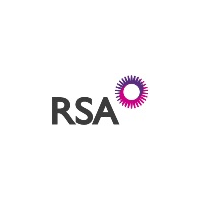RSA Insurance Group plc (LON:RSA) has announced its 2020 preliminary results.
· Group business operating result £751m1 up 15% vs 2019
· Group underwriting profit £550m1 up 36%
· Group combined ratio 91.1%1; underlying EPS 51.2p1 per share
· Statutory profit before tax £483m. Underlying ROTE 18.21%
Stephen Hester, RSA Group Chief Executive, commented:
“We are pleased to report excellent results for RSA in 2020. Underwriting profits are sharply up to new record levels and return on tangible equity has risen above our target range.
Naturally, the impact of COVID-19 was the major feature of our year, as for society as a whole. We prioritised the safety of our employees and sustaining service to customers. The Group paid out some £4.6bn in ‘normal’ claims whilst also providing for over £250m in COVID-19 specific claims, together with offering a range of other customer support measures.
The Group has delivered on large parts of our “best in class” ambitions. The quality of earnings is excellent which augurs well for RSA’s prospects in 2021 and beyond. I am proud of the hard work, dedication and focus of all my colleagues in what was a difficult and turbulent year.
We have built a high performing company and 2020’s results showcase the value creation thereby achieved. This in turn drove the 52% premium we were able to negotiate in Q4 through an all cash bid from Intact and Tryg. The Offer is on track to complete in the coming months, ending a chapter for RSA but not the whole story…”
Trading results
· Underlying profit before tax £718m1 up 15%. Statutory profit before tax £483m down 2% driven by market impacts from COVID-19, bid costs, exits and restructuring
· Group business operating result of £751m1 up 15%: Scandinavia £337m; Canada £256m; UK & International £200m1. Group total business operating result of £703m (2019: £597m). In aggregate, the estimated net impact of COVID-19 from premiums, claims and investment income effects is a £42m drag on business operating result
· Group underwriting profit of £550m1 up 36%. Group total underwriting profit £502m (2019: £346m)
· Group combined ratio of 91.1%1: Scandinavia 83.2%; Canada 88.3%; UK & International 96.7%1. Group total combined ratio 91.9%; UK & International (including exits) 98.5%:
– Group attritional loss ratio1 improved 4.5 points vs. 2019 of which an estimated 1.9 points are COVID-19 related
– Group weather costs 2.3%1 of premiums (2019: 2.5%1)
– Large losses 9.9%1 of which an estimated 1.2 points reflect negative COVID-19 impacts (2019: 9.7%1)
1 Excluding UK&I exit portfolios, refer to pages 33 to 43 for further information
– Group prior year underwriting profit of £15m1 (2019: £45m1 profit)
· Personal Lines (56% of net written premiums) combined ratio 86%1, Commercial Lines combined ratio 97%1 (44% of net written premiums)
Net written premiums (‘NWP’) of £6,220m1 were flat2 vs. 2019 excluding the estimated impacts of COVID-19 of c.£166m (3%). These consisted of price reductions, refunds, coverage changes and specific business line volume impacts. Including these impacts, NWP was down 3%2 overall vs. 2019. In total:
– NWP down 1%2 in Scandinavia
– NWP up 3%2 in Canada excluding the estimated impacts of COVID-19 or down 1%2 overall
– NWP down 2%1,2 in UK & International excluding the estimated impacts of COVID-19 or down 5%1,2 overall
· Group written controllable costs down to £1,339m (2019: £1,346m). Earned controllable cost ratio of 21.5%
· Investment income of £258m down 16%, at the lower end of our predicted range
· Other charges include £40m of mark to market losses/impairments/discount rate change relating to estimated COVID-19 market volatility and £78m for UK cost base restructuring
· Losses on UK&I exit portfolios were £48m reflecting one large claim, certain COVID-19 international construction claims and increased prior year reserves
· Statutory profit after tax £364m (2019: £383m)
· Underlying EPS 51.2p1 is up 15%, statutory earnings per share 30.9p down 5%
Capital & balance sheet
· Solvency II coverage ratio of 189%3 as stated, 170%3 including proforma dividend accrual for full year 2019 and full year 2020 (31 December 2019: 178% as stated, 168% proforma), versus our 130-160% target range
· Tangible equity £3.27bn up 13% (31 December 2019: £2.91bn), 316p per share
· Underlying return on tangible equity of 18.2%1, above the 13-17% target range
· IFRS pension surplus £290m (31 December 2019: £211m). Fall in bond yields increases estimated full year 2021 capital impact of bond ‘pull-to-par’ to c.£90m post tax
Acquisition update
The recommended bid for RSA by Intact in consortium with Tryg was approved by RSA shareholders in January and good progress is being made in satisfying the various conditions to closing. It is presently estimated that closing is likely to occur during Q2 2021, subject to the conditions being satisfied.
COVID-19 impacts
· While the impacts of COVID-19 are ongoing, we discuss the principal areas affected below with data for 2020:
– Financial market movements will continue to affect balance sheet, solvency ratios, pension surplus and investment income. Data as at year end 2020 is presented above.
1 Excluding UK&I exit portfolios, refer to pages 33 to 43 for further information
2 At constant FX
3The Solvency II capital position at 31 December 2020 is estimated
– During 2020, non COVID-19 claims frequency was down vs prior year in a range 9-34% providing partial mitigation to the negative impacts for COVID-19 claims, investment income reductions and lower premiums.
– On 15 January 2021, the Supreme Court handed down judgment relating to the FCA “test case” on business interruption coverage wordings in the UK. As a result of this judgment, gross loss reserving for 2020 increased but RSA does not currently expect the net loss estimates in relation to the policies before the Court to change materially from those previously reported.
– In 2020 RSA booked group wide gross claims costs (including substantial IBNR reserves) of £259m1.
– Reinsurance recoverables arise to mitigate gross claims costs under travel insurance protection, the Group GVC and Cat programmes. Please see page 28 for further details of the GVC and Group Cat programmes.
– There is also a COVID-19 effect on premium income for 2020, which totalled c.£166m reduction. This results from a range of customer driven coverage changes, volume impacts and specific premium relief schemes across our different territories.
– RSA itself was able to adjust well to substantially all employees working from home and business as usual for customer service has largely been sustained. We have prioritised health and welfare of our staff and have not taken part in government furlough programmes.
1 Gross numbers are net of specific quota share and facultative reinsurance impacts
MANAGEMENT REPORT – KEY FINANCIAL PERFORMANCE DATA
Management basis
| £m (unless stated) | FY 2020 | FY 2019 | FY 2020ex. exits | FY 2019ex. exits |
| Profit and loss | ||||
| Group net written premiums | 6,223 | 6,417 | 6,220 | 6,400 |
| Underwriting profit ¸ | 502 | 346 | 550 | 405 |
| Combined operating ratio ¸ | 91.9% | 94.6% | 91.1% | 93.6% |
| Investment result ¸ | 213 | 263 | 213 | 263 |
| Business operating result ¸ | 703 | 597 | 751 | 656 |
| Profit before tax | 483 | 492 | 531 | 551 |
| Underlying profit before tax ¸ | 670 | 565 | 718 | 624 |
| Profit after tax | 364 | 383 | ||
| Metrics | ||||
| Earnings per share (pence) | 30.9p | 32.6p | ||
| Underlying earnings per share (pence) ¸ | 47.0p | 39.4p | 51.2p | 44.5p |
| Interim dividend per ordinary share (pence) | 8.0p | 7.5p | ||
| Final dividend per ordinary share (pence) | See page 13 | See page 13 | ||
| Total dividend per ordinary share (pence) | See page 13 | See page 13 | ||
| Return on tangible equity (%) ¸ | 11.0% | 11.7% | ||
| Underlying return on tangible equity (%) ¸ | 16.7% | 14.2% | 18.2% | 16.0% |
| Balance sheet | 31 Dec 2020 | 31 Dec 2019 |
| Net asset value (£m) | 4,267 | 3,872 |
| Tangible net asset value (£m) ¸ | 3,274 | 2,910 |
| Net asset value per share (pence) ¸ | 400p | 363p |
| Tangible net asset value per share (pence) ¸ | 316p | 282p |
| Capital (including dividend) | ||
| Solvency II surplus (£bn) | 1.2 | 1.2 |
| Solvency II coverage ratio | 170% | 168% |
| Capital (excluding dividend) | ||||
| Solvency II surplus (£bn) | 1.5 | 1.3 | ||
| Solvency II coverage ratio | 189% | 178% |
CHIEF EXECUTIVE’S STATEMENT
Dear Shareholders,
This is likely to be my last letter to you at RSA, assuming the takeover bid by Intact/Tryg completes as expected in the coming months. It therefore seems appropriate to offer something of a retrospective view of the changes at RSA since I joined in 2014 and what they have delivered.
But first it is right to recognise the context of 2020, and indeed the start of 2021. COVID-19 has blighted the world in so many ways, from health to economics and beyond. All those badly affected deserve our sincere sympathies and understanding. For our own part, RSA has prioritised sustaining customer service during these difficult times. In addition to paying out claims of some £4.6bn for business as usual, COVID-19 related claims of over £250m have been provided for, on top of a range of other customer support measures from premium rebates to bill forbearance and charitable donations.
In 2020 RSA produced excellent underlying profits, record underwriting results and a return on tangible equity of 18.2%1, above the top end of the targeted range and exceptional for a capital intensive financial institution. This was our fourth record underwriting result in 5 years. Many companies in our industry and elsewhere fared worse and, like them, RSA’s results had to be achieved despite a drag on profits from COVID-19 as well as coping with the many other severe challenges it posed – to capital and operations, and most especially to customer service. RSA’s results for 2020 are a remarkable achievement, a reflection of 7 years of business building and in turn were the foundation for showcasing the attractiveness of RSA’s business in discussions with Intact and Tryg.
As noted above, the other major feature of 2020 for RSA was the all cash takeover bid we negotiated, valuing our Company at a 52% premium over the undisturbed share price. The high value placed on our business was testimony to its strength and attractiveness. We were not looking to sell and RSA’s future was bright as an independent company. But in a liberal market based economy, shareholder value is rightly prized, forming the basis as it does of savings and pension returns and a well functioning economy. There is no doubt this bid offers our shareholders exceptional value. But the future for other stakeholders is also safeguarded. Our businesses will live on with their new owners, our people will have the opportunity of great careers and our customers will continue to be serviced well.
History and Inheritance
RSA can trace its history back 300 years to the inception of the insurance industry after the Great Fire of London, though today’s company is the product of many mergers and acquisitions since that time. This proud history gave us a powerful business franchise with customer loyalty, goodwill and recognition going back decades. It also brought us expert staff, with longevity, and an ethos prizing customer service and teamwork. These business assets lie at the heart of what we have been able to accomplish.
However, RSA in early 2014 also had a legacy of key weaknesses – in capital, in performance, in management, in costs and capability and in a strategy that had not evolved to deal with modern realities. Some of these weaknesses will take still more years to completely eliminate. However, during 2014/15 a fundamental restructuring of the company set right much that was failing, put RSA on a stronger footing and allowed a second phase to begin, aiming not at rescue, but at business outperformance.
1 Excluding UK&I exit portfolios, refer to pages 33 to 43 for further information
What did we do?
We implemented a focused strategy to divest underperforming or ill suited business and concentrate all our resources on our strongest franchises which collectively had coherence and complementarity. We restored capital and risk profile to undoubted strength. We made extensive management changes and began to implement a harder driving performance culture married to the positives of the historic legacy. We cut costs substantially to recognise the essential nature of competitiveness in a mature industry without patents. And we embarked on a comprehensive rebuilding of capabilities across the company, centred on the effective service of customers.
Phase two, the quest for “best in class performance”
With success in restoring RSA to robust health, the mission was expanded to seek excellence, or “best in class” performance as we labelled it. 2016-20 have been spent in pursuit of that mission. This has involved unswerving focus on improving underwriting disciplines, cost efficiency, capability modernisation through technology and ways of working and, at its heart, a focus on winning with and for customers in those areas we could be strong. And enabling all these efforts was continued strategic discipline and performance focus and a drive to make both a permanent part of the RSA culture.
2020 results point to considerable success from these efforts. In all our overseas businesses, which constitute 80% or more of the Group’s value, we have achieved best in class results. But “best in class” is a mission more than a destination. Our competitors will keep improving, and we must also to sustain the gains so painfully won. Even in the UK, our most difficult market, performance is much improved (at least ex covid impacts), and we can see our way to the targeted results within the coming few years.
Business resilience
2020 has shown so well the vital nature of business resilience, a lesson especially relevant in financial services where you are selling a promise to customers to be there when their need arises.
RSA has shown it learnt this lesson. It’s not just about strong capital. It’s also about strong operations and effective risk management. But above all it’s about the ability to absorb blows, externally or internally generated, and to come back effectively. No business can be perfect. Mistakes will occur, weaknesses be uncovered and the unexpected transpire. Our record since 2014 has blemishes. We saw that in excessive exposure to natural catastrophes in 2018. And perhaps in our part of the industrywide wording ambiguities that left some customers uncertain of how policies responded to COVID-19, a position now addressed in the UK by the Supreme Court verdict. But we have and will continue to take the results of weaknesses and mistakes head on, to put things right and to build back stronger.
People, culture and customers
All businesses need the right tools, whether technology, capital, expertise etc. But it’s humans that wield those tools and must be accountable for what is made with them. And in particular its leadership. In most businesses the workforce are hard working, dedicated and want their company to succeed. But how well their efforts and talents are aimed and organised, and whether the tools they need are provided, these are the tasks of leadership. And business outcomes so often reflect the effectiveness or otherwise of leadership.
RSA’s leadership, our top 100, has changed immensely in recent years, in lineup, in attitudes and in effectiveness. Our accomplishments are a team tribute to this group of people. And for that I am immensely grateful.
But truism as it is, companies are nothing without their ability to satisfy customer needs. In a changing world the basics of need often change slowly, though expectations on how customers are served and through what channels increase and change rather faster. This is no more so than in financial services. RSA has prioritised serving customers well throughout its history. Today the urge is no less strong and high levels of digital investment and investment in skills support more modern delivery. The pandemic has required us to do all this whilst suddenly shifting to home working. We met this challenge well. However, there is always more we aspire to do and plenty of room to improve. That is a challenge that will never subside.
Thank you
Thank you to our customers for their trust which is the lifeblood that motivates our Company. Thank you to our forebears for the inheritance of RSA. Thank you to the Board for constant support and constructive challenge. Thank you to an amazing Chairman, the best I have worked with. Thank you to all my colleagues. Together we achieved a lot. And thank you to our shareholders without whose encouragement and support the urge to achieve would have been much weaker.
RSA’s journey is not over. We have momentum into 2021. I’m confident we will do well up to when ownership changes and beyond, and in the unlikely event the bid does not complete, the future will be bright nevertheless.
Stephen Hester
Group Chief Executive – RSA Insurance Group
25 February 2021









































